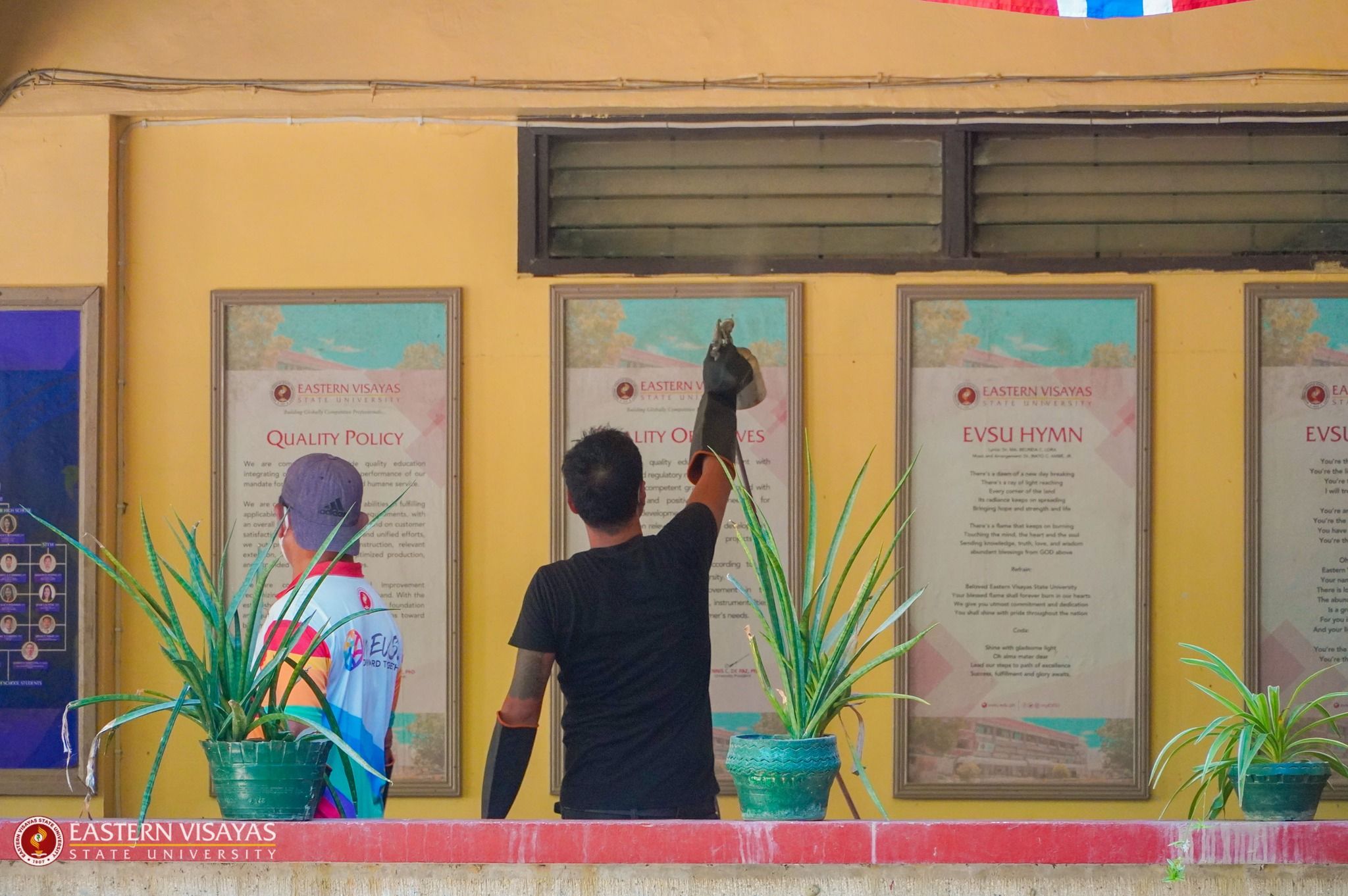In light of confirmed cases of Hand, Foot, and Mouth Disease (HFMD) on its main campus, Eastern Visayas State University (EVSU) has suspended all in-person classes from October 6 to 10, 2025, transitioning to online or asynchronous learning modalities.
The disruption comes as the university administration conducts a campus-wide disinfection initiative targeting classrooms, laboratories, restrooms, offices, and other common areas.
The campus bookstore, TechnoMart, has been temporarily closed, and non-teaching personnel have been directed to sanitize their workspaces.
According to official statements, EVSU has recorded five confirmed cases of HFMD among its community, particularly at the Secondary Laboratory School (SLS) located on campus grounds.
Reports indicate that the first known case involved a Grade 10 student from SLS.
EVSU serves around 12,400 students in the current academic year, many of whom are affected by the temporary shift to remote classes.
In its public advisory, the university urged the community to maintain strict personal hygiene, avoid sharing personal items, and promptly report any flu-like or HFMD symptoms to the campus health services.
Risks and Precautions
Hand, Foot, and Mouth Disease is a contagious viral infection primarily caused by episodes of enteroviruses, most commonly Coxsackievirus A16, Coxsackievirus A6, and Enterovirus 71.
Initial symptoms often include fever, sore throat, loss of appetite, and general malaise, which may progress into painful sores inside the mouth and red or blister-like rashes on the palms, soles, buttocks, and sometimes knees or elbows.
Transmission occurs through respiratory droplets, contact with contaminated surfaces or objects, and exposure to stool of infected individuals.
The virus may survive on surfaces for hours, making crowded environments and shared facilities especially vulnerable to outbreaks.
While most cases are mild, recovery typically occurs within 7 to 10 days.
In rarer instances, complications such as viral meningitis, encephalitis, or even neurological symptoms have occurred.
Public health guidelines recommend isolation of infected persons until they are symptom-free, frequent handwashing, disinfection of commonly touched surfaces, and avoidance of sharing eating utensils or personal items.
The timing of the outbreak poses a challenge to EVSU’s academic operations.
The shift to remote learning, while necessary, has disrupted schedules and added stress to both faculty and students.
Critics note that not all students may have uniform access to the internet or devices, possibly exacerbating inequalities.
Administrators, meanwhile, emphasize that health and safety take precedence.
“This cleaning effort aims to prevent further transmission and ensure a safe environment before students and staff return to in-person classes,” the university declared.
EVSU also continues coordination with local health authorities to monitor developments.
#WeTakeAStand #OpinYon #OpinYonNews
